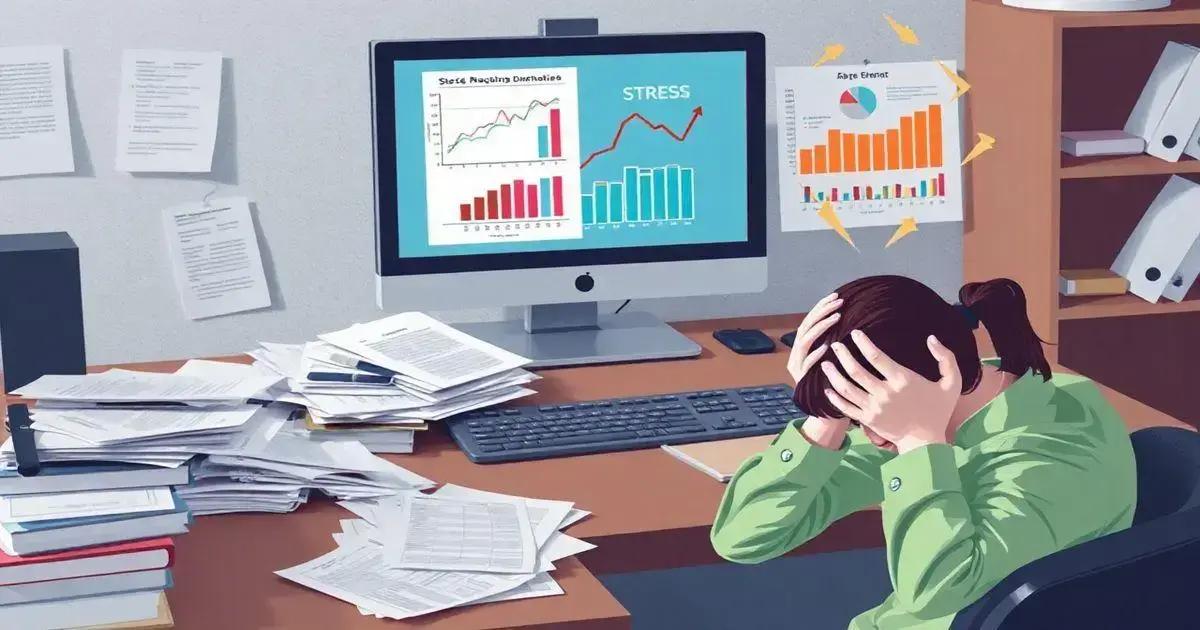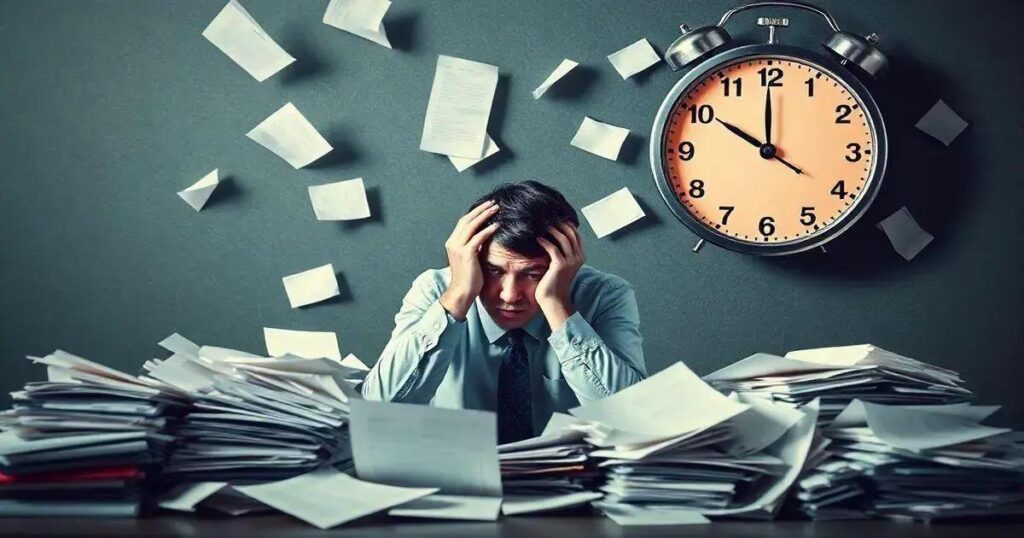The importance of recognizing early signs of burnout lies in identifying symptoms like persistent fatigue, lack of motivation, and emotional distress, allowing individuals to take proactive steps such as setting boundaries and seeking support to prevent severe mental health issues.
Recognizing early signs of burnout is essential for maintaining mental health and well-being in today’s fast-paced world. People often overlook the signs until it is too late, leading to severe consequences. In this article, we will discuss the definition of burnout, key symptoms to watch for, effective strategies to combat burnout, and when you should seek professional help.
Understanding Burnout: Definition and Causes

Burnout is a state of emotional, physical, and mental exhaustion caused by prolonged and excessive stress. It can happen to anyone, especially those in demanding jobs. Understanding burnout is crucial in preventing it and ensuring overall well-being.
What Causes Burnout?
There are several factors that can lead to burnout. Work-related stress is the most common cause. Long hours, unrealistic expectations, and lack of support can create a continuous cycle of pressure.
Another significant factor is personal challenges. Issues such as financial difficulties, relationship problems, or caregiving responsibilities can increase stress levels and contribute to burnout.
Why Recognizing Burnout Matters
Recognizing the causes of burnout helps individuals and organizations address the root problems. Early acknowledgment can lead to effective solutions and prevent more severe consequences. This understanding also fosters a supportive work environment where employees feel valued and heard.
Burnout can affect productivity, creativity, and overall job satisfaction. Thus, understanding its definition and causes is the first step toward prevention and recovery.
Signs and Symptoms of Early Burnout

Recognizing the signs and symptoms of early burnout is vital for taking action before it worsens. Many individuals may not realize they are experiencing burnout until it drastically affects their lives.
Emotional Symptoms
Emotional signs can include feeling overwhelmed, experiencing anxiety, or feeling a sense of hopelessness. Individuals may also feel less motivated and more cynical about their work.
Physical Symptoms
Burnout can manifest physically as well. Common symptoms include chronic fatigue, changes in sleep patterns, and frequent headaches or stomach issues. Muscle tension and other stress-related health problems may also arise.
Cognitive Symptoms
Cognitive signs may include lack of focus, forgetfulness, and difficulty concentrating. Individuals might find it hard to make decisions or feel overwhelmed by minor tasks.
Behavioral Symptoms
Behavioral changes can also signal early burnout. This may include withdrawal from social interactions, decreased productivity at work, or using food, alcohol, or other substances to cope.
Being aware of these signs and symptoms is crucial in addressing early burnout effectively. Early recognition allows for timely intervention and better coping strategies.
Strategies to Combat Burnout Early

Implementing effective strategies to combat burnout early can significantly improve your quality of life. Here are some actionable steps to consider.
Set Boundaries
Establishing clear boundaries between work and personal life is vital. Make it a habit to turn off work-related notifications after office hours and dedicate time for personal activities.
Practice Self-Care
Self-care is crucial in preventing burnout. Prioritize activities that replenish your energy, such as regular exercise, healthy eating, and sufficient sleep. Taking time for hobbies or relaxation can also enhance your well-being.
Seek Support
Don’t hesitate to reach out for support from friends, family, or colleagues. Sharing your feelings and experiences can provide relief and different perspectives on handling stress.
Develop Coping Strategies
Work on building effective coping strategies for stress management. Techniques such as mindfulness, meditation, or deep-breathing exercises can help reduce anxiety and improve focus.
By actively implementing these strategies, individuals can proactively manage stress and reduce the risk of burnout before it escalates.
When to Seek Professional Help for Burnout

Knowing when to seek professional help for burnout is essential for your mental health. Here are some key indicators to watch for.
Persistent Feelings of Exhaustion
If you feel exhausted even after a full night’s sleep, it might be time to seek help. Persistent fatigue can be a sign that burnout has become severe.
Inability to Cope with Daily Tasks
Struggling to manage everyday responsibilities, whether at work or home, indicates a need for professional guidance. If routine tasks feel overwhelming, professional support can provide strategies to cope.
Declining Mental Health
Experiencing anxiety, depression, or mood swings can signify burnout. If these feelings persist and interfere with daily life, consulting a professional can help address underlying issues.
Isolation from Friends and Family
If you find yourself withdrawing from loved ones and social situations, this isolation can worsen feelings of burnout. A therapist can work with you to rebuild connections and improve social interactions.
Recognizing these signs can help you take proactive steps to address burnout and seek the help you may need.
Understanding and Addressing Burnout
Recognizing the early signs of burnout is essential for maintaining mental health and productivity. By understanding the definition and causes, individuals can identify symptoms and take proactive steps towards prevention.
Implementing strategies such as setting boundaries, practicing self-care, and seeking support can significantly reduce the risk of burnout. Additionally, knowing when to seek professional help ensures that you address burnout effectively before it escalates.
By prioritizing mental well-being and fostering supportive environments, we can combat burnout and promote healthier, more balanced lives.
FAQ – Frequently Asked Questions about Burnout
What is burnout?
Burnout is a state of emotional, physical, and mental exhaustion caused by prolonged stress, often seen in demanding work environments.
What are the early signs of burnout?
Early signs of burnout include persistent fatigue, lack of motivation, feelings of hopelessness, and difficulty focusing on tasks.
How can I prevent burnout?
Preventing burnout involves setting boundaries between work and personal life, practicing self-care, and seeking support from friends and family.
When should I seek professional help for burnout?
If you experience persistent exhaustion, decline in mental health, or inability to cope with daily tasks, it may be time to seek professional help.
What strategies can help combat burnout?
Effective strategies include setting clear boundaries, practicing self-care routines, and developing coping strategies for stress management.
Can burnout affect my physical health?
Yes, burnout can lead to physical health problems such as chronic fatigue, headaches, muscle tension, and other stress-related issues.












